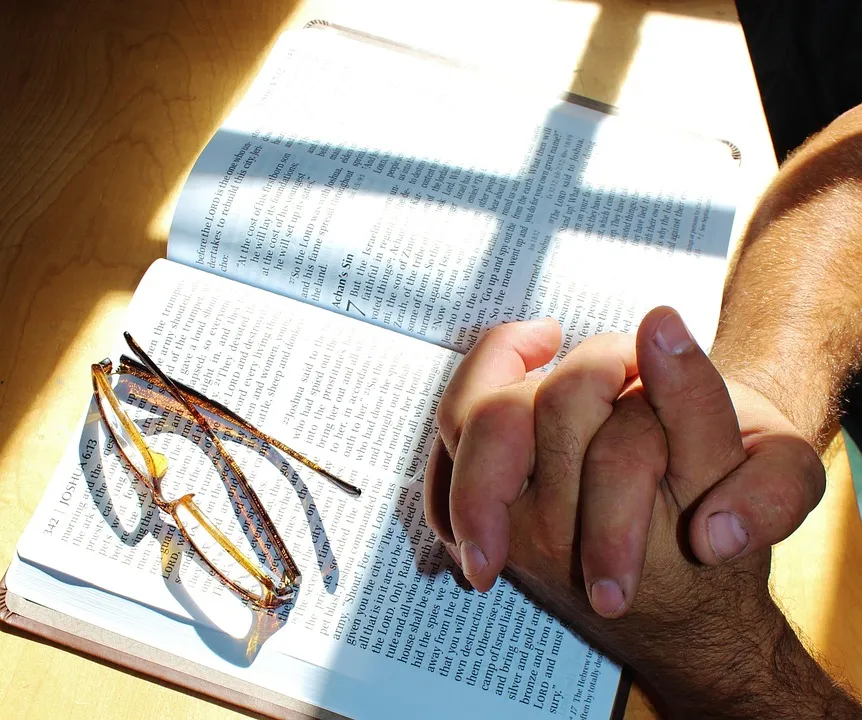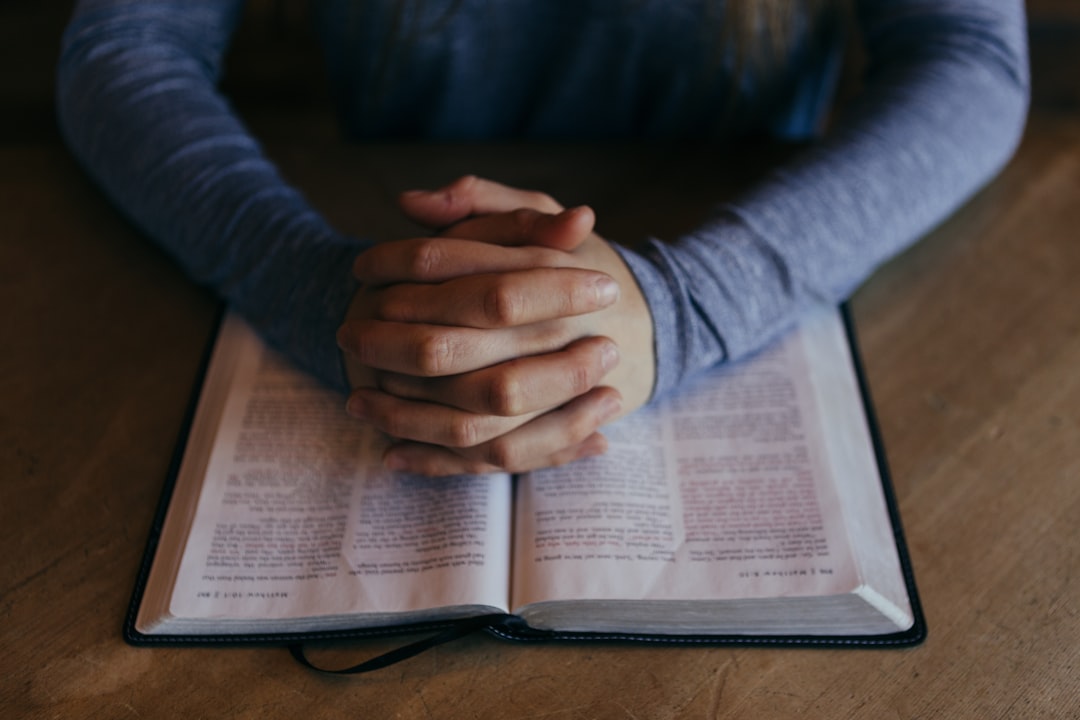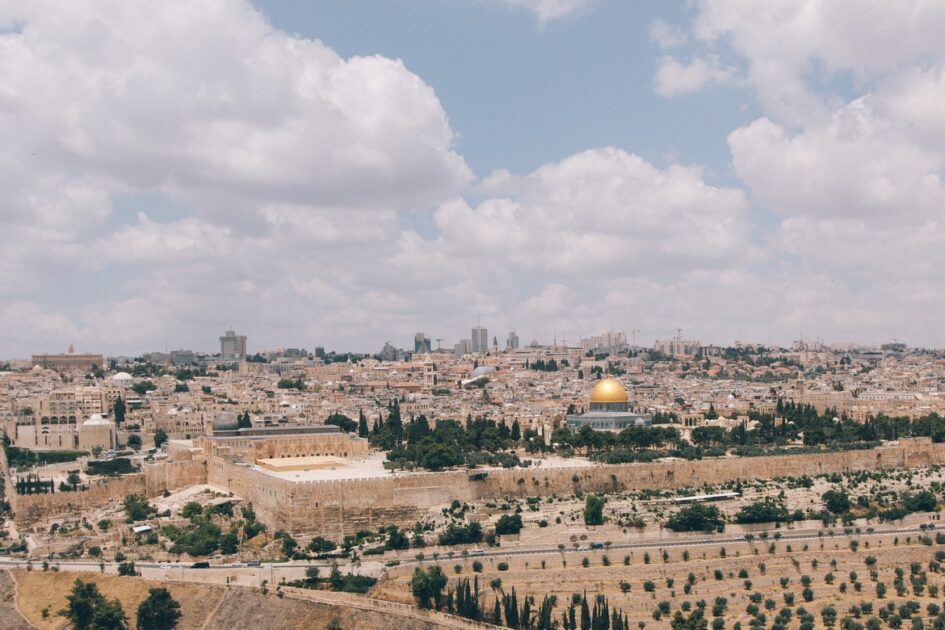Prayer is a powerful and personal experience that has been celebrated for centuries across different cultures and religions. It has been shown to provide a range of benefits from physical health to emotional wellbeing. Regardless of what motivates someone to pray, it is undeniable that the practice holds significant meaning for many. In this post, we’ll explore why prayer has such an important place in our lives, different ways to approach it, and how we can incorporate it into our daily routine to find greater peace and purpose. Join us in discovering the power of prayer.
The Importance of Prayer in Different Religions

Prayer has been a central component of many religions for centuries. Whether it is offering thanks, asking for guidance, or seeking healing, prayer is a way for people to connect with their spirituality and faith.
Different religions have different approaches to prayer. For example, in Christianity, prayer is often directed towards God the Father, while in Islam, it is directed towards Allah. In Judaism, prayer is a way to connect with God, and in Buddhism, it is a way to achieve inner peace and clarity of mind. Regardless of the religion, prayer is seen as an essential part of the spiritual practice, helping people to cultivate a deeper connection with their faith.

Prayer is also a way for people to express their gratitude. Many religions teach that gratitude is an essential aspect of faith, and prayer is a way to offer thanks for all the blessings in life. Whether it is something small or significant, expressing gratitude can help people to cultivate a positive outlook and find peace in difficult times.
Prayer can also play a vital role in healing. Many religions believe in the power of prayer to help those who are sick or struggling with mental health issues. Offering prayers for healing and well-being can bring comfort to those in need and help them feel less isolated in their struggles.
In summary, prayer is a way for people to connect with their spirituality and faith. It is seen as an integral component of many religions, allowing people to express their gratitude, seek guidance, and find comfort in difficult times. Regardless of one’s faith, prayer can play a vital role in cultivating inner peace and well-being.
The Benefits of Prayer: Physical, Mental, and Spiritual
Prayer is an important practice for many religions around the world, and the benefits of prayer extend beyond just spiritual fulfillment. In fact, research suggests that prayer has physical, mental, and emotional benefits as well.
Physically, prayer has been linked to improved immune function and lowered blood pressure. In times of stress, prayer can help regulate breathing and heart rate, leading to a decrease in stress hormones in the body. Additionally, prayer has been shown to have pain-reducing effects, and has been used in conjunction with medical treatments to aid in the healing process.
Mentally, prayer can have positive effects on one’s mental health. Many forms of prayer involve meditation and mindfulness, which have been shown to reduce symptoms of anxiety and depression. A regular prayer practice can also provide a sense of comfort and grounding in times of uncertainty or stress.
Finally, prayer has a profound impact on one’s spiritual well-being. Prayer can deepen one’s connection with a higher power or divine source, leading to feelings of peace, contentment, and purpose. For many, prayer is a way to express gratitude and cultivate feelings of compassion and empathy towards others.
Overall, the benefits of prayer are vast and diverse. Regardless of one’s religious affiliation, prayer can be a powerful tool for promoting physical, mental, and spiritual well-being.
Different Ways to Pray: Meditation, Gratitude, Forgiveness and More
When it comes to prayer, people often think of it as simply talking to God. While that is certainly a common form of prayer, there are actually many different ways to pray. Here are some examples:
-
Meditation: This involves sitting quietly and focusing on your breath, a word or phrase, or an image. Many people find that meditation helps them to feel more calm and centered, and can be a great way to connect with God.
-
Gratitude: This type of prayer involves expressing thanks for the blessings in your life. By focusing on the good things, you can cultivate a sense of joy and contentment, and deepen your connection with God.
-
Forgiveness: We all make mistakes, and asking for forgiveness is an important aspect of prayer. Whether you are seeking forgiveness for something you have done, or forgiving someone else who has hurt you, this type of prayer can bring about healing and reconciliation.
-
Intercession: This involves praying for others, whether it be loved ones, friends, or even strangers. By lifting up their needs and concerns to God, intercessory prayer can be a powerful way to show love and compassion towards others.
-
Praise: This type of prayer involves praising God for who he is and what he has done. By focusing on his greatness and goodness, we can deepen our sense of awe and reverence, and draw closer to him.
-
Petition: This involves asking God for specific things you need or want, such as healing, guidance, or provision. While it’s important to approach God with a spirit of humility and surrender, he also welcomes our honest and heartfelt requests.

Ultimately, there is no right or wrong way to pray, as long as it comes from a sincere and humble heart. By exploring different types of prayer, you may find new ways of connecting with God and deepening your faith.
How Prayer Helps with Emotional Health and Coping with Stress
Prayer has been found to have a positive impact on emotional health, and it can help individuals cope with stress. Whether you are facing challenging times or simply experiencing a difficult period in your life, prayer can provide much-needed guidance, comfort, and peace.
Through prayer, individuals can connect with a higher power, whatever your religious beliefs may be. People of all faiths can benefit from the mental and emotional relaxation that comes from praying. One of the most powerful aspects of prayer is the surrender to a higher power, which can help you let go of feelings of anxiety, self-doubt, and uncertainty.
Studies have found that prayer can significantly reduce stress levels and improve mental health. When we pray, our bodies release the hormone oxytocin, which has been linked to feelings of euphoria and well-being. Oxytocin encourages a calming effect that can help people relax and feel less anxious. Prayer can, therefore, be an integral part of mental health coping mechanisms, especially when used alongside other practices like exercise, mindfulness and journaling.
Additionally, prayer can increase feelings of gratitude, which has been linked to higher levels of happiness and life satisfaction. When we take time to reflect on the good things in our lives, even during difficult times, it can help shift our perspective and remind us that we have many blessings that go unnoticed. This can create a positive mental state and help ease feelings of stress and anxiety.
Prayer can also give individuals a sense of connectedness to others, whether it is a religious community or family and friends. When we pray for others, we cultivate empathy and compassion, which can help us better understand the struggles and challenges others face. It can also lead to important relationships and a sense of community.
« Exploring the Vastness of God: Understanding the Infinity of the Universe
Exploring the Mystery of Gopher Wood: The Biblical Material that Built Noah’s Ark »
For those who are struggling with their emotional health, prayer can be a way to find peace in the midst of a difficult time. It can provide a sense of hope and purpose and help us remember that we are not alone in our struggles.
Overall, prayer can help individuals cope with stress and improve emotional well-being. While it is not a replacement for professional medical or mental health treatment, it can be a powerful supplement to other self-care practices. Consider incorporating prayer into your daily routine and see how it may positively impact your mental and emotional health.
Prayer for Others: Community, World Peace, Love, and The Sick
One of the beautiful aspects of prayer is its ability to create a sense of interconnectedness and compassion. When we pray for others, we not only help those individuals but also strengthen our connection to them and the wider community. Here are some ways prayer can impact the greater world around us:
-
Community: Prayer plays a pivotal role in bringing communities together. Whether it’s through group prayer sessions, prayer walks, or community vigils, prayer provides a space for people to come together and support one another.
-
World Peace: Many religions emphasize the importance of praying for world peace and an end to conflict. By focusing our intentions on global issues, we can work towards a more peaceful and harmonious world.
-
Love: Praying for love and relationships can help bring people together and heal rifts. This can include romantic relationships, but also family relationships, friendships, and even relationships with co-workers or neighbors.
-
The Sick: Prayer can be a powerful tool for those struggling with physical or mental illness. Whether praying for ourselves or loved ones, prayer can provide comfort, hope, and healing.

When we pray for others, we are extending love and compassion beyond ourselves. It’s important to remember that prayer is not a one-way street – while we may be asking for help or healing, we also have the ability to give back through our intentions and focus. Remember that your prayers have the power to make a difference, both in the lives of others and in the wider world.
Developing a Daily Prayer Practice: Tips and Challenges
If you want to deepen your connection with God and experience the benefits of daily prayer, developing a daily prayer practice is a great place to start. Here are some tips and challenges to help you get started:
-
Set aside time each day for prayer.
The first step in developing a daily prayer practice is to make it a priority in your daily schedule. Choose a time each day where you can be alone and uninterrupted for a few moments of prayer. It can be in the morning, before bed, or during your lunch break. The important thing is to establish a consistent routine that works for you. -
Decide what kind of prayer works best for you.
There are many different ways to pray, so it’s important to find a style that resonates with you. Some people prefer silent meditation, while others find comfort in reciting traditional prayers or speaking from the heart. Experiment with different methods until you find one that feels meaningful and authentic to you. -
Stay focused and avoid distractions.
It’s easy to get distracted during prayer, especially if you’re not used to sitting still and quieting your mind. Try to eliminate as many distractions as possible, such as turning off your phone or finding a quiet space to pray. If your mind does start to wander, gently bring your focus back to your prayer. -
Hold yourself accountable.
Starting a new habit can be challenging, so it’s important to hold yourself accountable. Consider sharing your prayer goals with a friend or mentor who can help support you and keep you on track. You can also write down your goals or use a prayer journal to track your progress.
Developing a daily prayer practice takes time and effort, but the benefits are well worth it. With consistent effort and a willingness to grow, you can deepen your connection with God and experience the power of prayer in your daily life.
The Future of Prayer in a Changing World
As the world changes rapidly around us, it’s understandable to wonder what the future of prayer holds. With technology advancing and the way we communicate with each other evolving, it’s possible that our methods of prayer and ways of connecting with God will change as well. Here are some thoughts on what the future of prayer might look like:
-
Virtual Prayer: With many religious institutions offering virtual services during the pandemic and people seeking ways to connect with others during times of social distancing, it’s possible that virtual prayer services will become more common even after the pandemic ends. This allows people to participate in prayer from anywhere in the world and connect with others who share their faith.
-
More Personalized Prayer Practices: As people seek individualized approaches to spirituality and religion, it’s possible that prayer practices will become more personalized as well. People may turn to meditation, mindfulness, or other forms of prayer that speak to their individual needs and beliefs.
-
Increased Focus on Social Justice: Many religious institutions have a tradition of advocating for social justice, and this focus may become even more central to prayer practices in the future. People may pray for world peace, an end to oppression, and for the strength to make meaningful changes in their communities.
-
Embracing Interfaith Dialogue: As the world becomes more diverse, it’s possible that prayer practices will become more inclusive and representative of different faiths. Interfaith dialogue may become more common, allowing people from different backgrounds to pray together and learn from each other’s traditions.
-
Technology-Enhanced Prayer: With the rise of virtual reality and other technological advancements, it’s possible that prayer practices will be enhanced and transformed through technology. People may be able to visually immerse themselves in prayers, connect with others from around the world, and even use technology to track their progress in their prayer practice.
The future of prayer is undoubtedly an unknown, but by embracing new technologies, promoting social justice, and finding ways to connect with people from different backgrounds, it’s clear that the power and purpose of prayer will continue to thrive and evolve in the years to come.


















